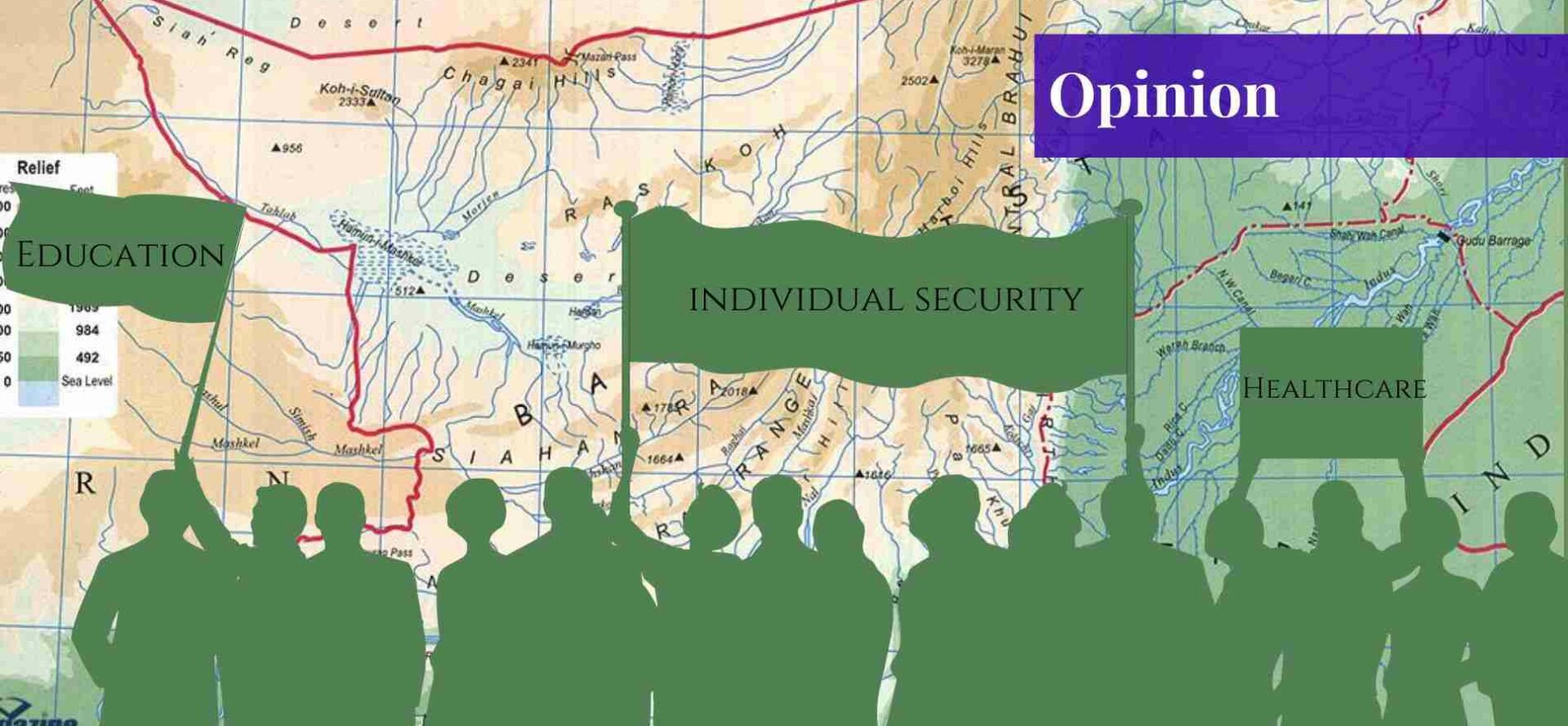Balochistan, being the biggest province of Pakistan area-wise, became a separate province in 1970. The Provincial Assembly of Balochistan came into being under a presidential order on March 30, 1970, after the dissolution of the One Unit Program. Baloch separatists were not in favor of joining Pakistan. Struggling for a separate homeland, their movement started to gain momentum in the 1970s. The president of Pakistan at that time, Zulfiqar Ali Bhutto ordered the state forces to suppress the movement. The military operation lasted 4 long years, from 1973 to 1977. It took the lives of an estimated 16,000 innocent civilians. About 5,300 Baloch separatists and 3000 Pakistani soldiers were killed. After this operation, the movement settled for a little while but it managed to flourish again over the years.
The Baloch people, mainly Baloch separatists, felt alienated. Since that time, the separatists have been carrying out violent attacks against Pakistani forces including the Pakistan Army and FC Rangers.
Political Pitfalls
The political structure of Balochistan has always remained a conflictual issue. It is widely believed that the elected officials of Balochistan are the products of the establishment. They are not voted to seat by the people but rather are handpicked by those in power. There has always been a trend of a coalition government in Balochistan which does not fulfill the basic needs of the common people of Balochistan. The problems that Baloch citizens are facing in every city and town of the province are innumerable. Political parties come to power to fill their pockets and favor their dear ones. A common man in the street enjoys no basic facilities from the ruling elites nor are his fundamental rights fulfilled.
Members of the National Assembly of Pakistan representing Balochistan also play a vital role in the formation of the central government. Although there are 16 members from Balochistan they are trump cards for the government. Recent developments from PMLN and PPP point to the importance of these 16 members. PMLN’s president, Mian Muhammad Nawaz Sharif, visited Balochistan in the middle of November (14th November) and almost 30 provincial and national members joined the PMLN party. PPP leadership also gathered in Balochistan at November-end to attract seat holders towards their political ideology which resulted in around a dozen members joining the PPP party. This shift of loyalties by joining parties was done solely for increasing personal chances at winning elections rather than having an affinity towards or resonating with party manifestos.
Rich in Resources
Balochistan is rich in resources like coal, chromite, oil, natural gas, gold, and many more. The first and foremost right of these resources is to Baloch citizens and then to the remaining provinces of Pakistan. But something contradictory takes place in the state. The Baloch are still living in misery, despite living on top of literal and figurative goldmines. They don’t have access to basic facilities such as schools, hospitals, clean drinking water, healthy food, properly paved roads, and gas and electricity connections. They are yet to leave the Stone Age. Gold reserves are abundant in Balochistan but people are still struggling for safe drinking water – two incomprehensible but simultaneous realities.
Reko Diq
Pakistan’s mines, especially those located in Balochistan are rich beyond measure. Reko Diq in particular, contains gold and copper reserves. Reko Diq is a town in the Chagai District of Balochistan and Reko Diq Mine is a planned mining operation. Reko Diq is owned 50% by the Barrick Company, 25% by the three federal state-owned enterprises, and 25% by the province of Balochistan. Reko Diq has one of the world’s largest copper and gold reserves of about 5.9 billion tonnes. But the question to the authorities is where the 25% share of the province is going and being invested. The dilemma of the people of the province is still increasing and no solid steps are being taken to alleviate the misery.
Missing Persons
The issue of missing persons is gaining strength with each passing moment. The youth of Balochistan is being killed in fake encounters. The number of enforced disappeared persons in Balochistan has increased this year as compared to the previous year. Armed Forces have been known to pick people from their homes, educational institutions, and public places and make them disappear without a trace or reason. The families of these missing people spend the rest of their lives on the roads or from one police station to another or from one court to another. Many Baloch people have been killed at the hands of the CTD who used the label of terrorism to justify their actions. Recently, a Baloch youth named Balaach was arrested by CTD on 20th November, and an FIR was registered against him on the 21st. CTD claimed that they recovered 20 kilograms of explosives from Balaach. They presented him before the court. But on the night between the 22nd and 23rd of November, Balaach’s body was brought to the Turbat hospital where his family identified him. His family and thousands of others sat on the road in Turbat. They demanded a fair inquiry and FIR against the CTD personnel but nothing happened. At last, the Balochistan High Court ordered the suspension of the four CTD personnel.
March to Punjab
Tired of the fake encounters and the missing of their beloved ones, a massive crowd headed a long march from Turbat towards Islamabad. The majority of the crowd consisted of women and the families of the missing persons. On Tuesday, the 19th of December, they reached Dera Ghazi Khan which is a city connecting Balochistan to Punjab. Dr. Mahrung Baloch lead the rally.
Their demands included the safe recovery of their loved ones and an end to enforced disappearances and fake encounters. They stated that the people who are victims of the enforced disappearances are either social activists, part of political student organizations, or mere students in any educational institution. They raise their voices against the wrongdoings of the state which is their right as is mentioned in Article 19 of the Constitution. They highlight the main issues of their daily life. Raising slogans and holding banners for their basic rights is considered a crime.
People of Balochistan are frequently labeled as mutineers. The reason for this is that they speak for their rights and demand their basic rights from State institutions. They demand the same rights and dealings that are being doled to the other provinces. Balochistan makes up 44% of Pakistan and area-wise is Pakistan’s largest province but is the most exploited and neglected one of all. Every government before coming into power promises to solve the issues of the Baloch but after gaining the seat no one pays heed to the province. Since independence, the development of Balochistan has been put on the back burner and so have the people of Balochistan. It is high time for the state institutions and the government to take effective measures to meet the grievances of the people of Balochistan, otherwise, it could prove disastrous in the long run.
If you want to submit your articles, research papers, and book reviews, please check the Submissions page.
The views and opinions expressed in this article/paper are the author’s own and do not necessarily reflect the editorial position of Paradigm Shift.



















